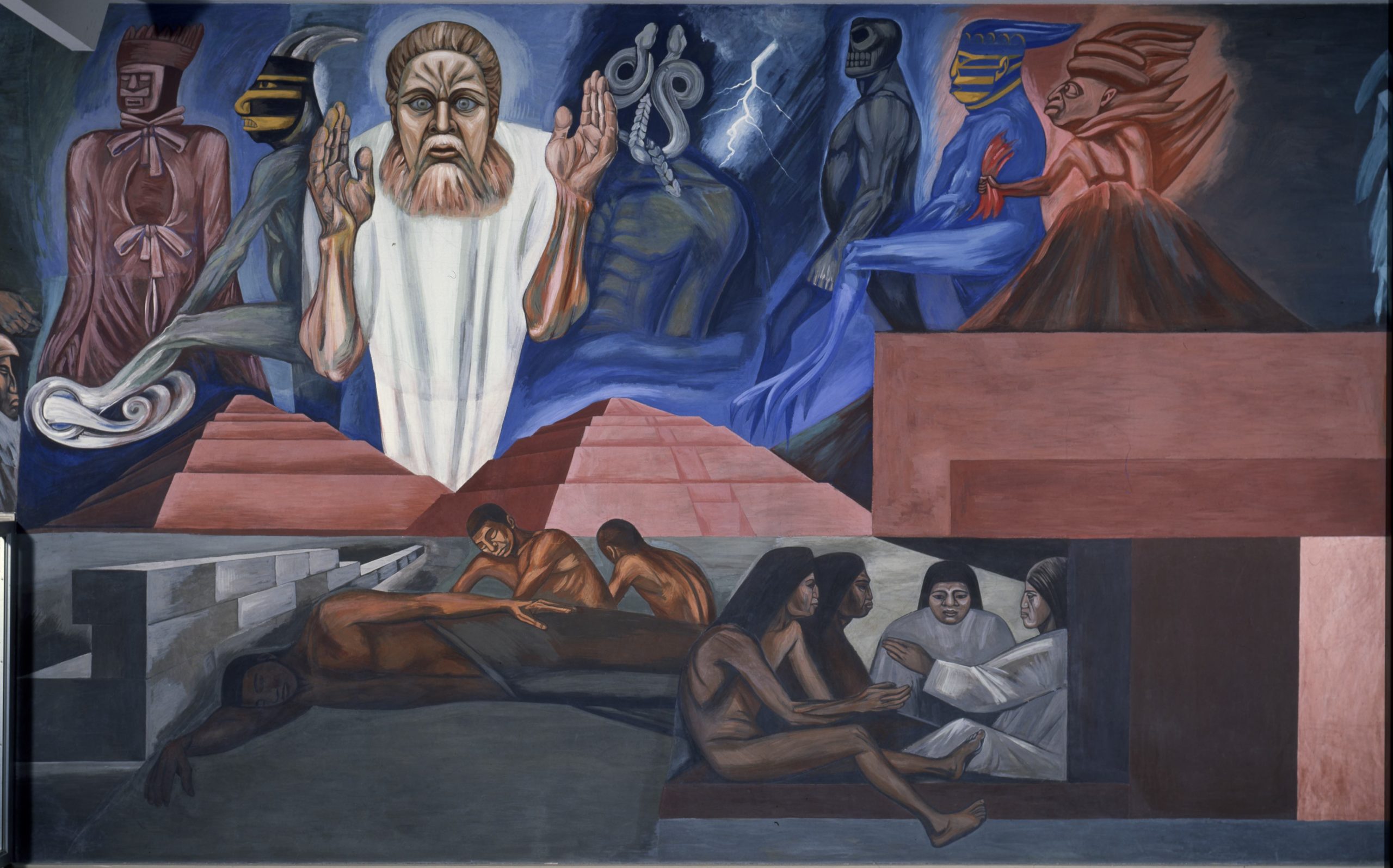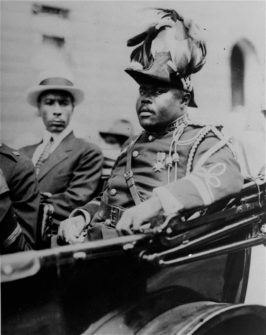
Comparative Religious Ethics and Decolonial Thought
As a subfield of philosophy of religion, comparative religious ethics is concerned with the study of various peoples’ ethical dispositions and their production of ethical knowledge that might reasonably be called “religious.” At its best, work in the subfield is marked by a commitment to denaturalizing the normative status of Christian and/or European philosophic concepts, vocabularies, and traditions in religious ethics. Sometimes this commitment takes the form of extensive methodological and metaethical reflection. Other times, it appears in the formation of self-consciously provisional categories for comparison. Whatever shape it takes, this commitment might be regarded as stemming from comparativists’ desire to challenge the longstanding cultural imperialisms of philosophy of religion and religious ethics—or what decolonial theorists would call their coloniality—and what the founding editors of the Journal of Religious Ethics in 1973 called “the parochialism and Western bias that tends to characterize the present state of our discipline.” Even though most comparativists have not adopted avowedly radical or anticolonial perspectives, they have generally maintained that neither Christianity nor European philosophy should set the standard for ethical inquiry.
Viewed from this vantage, comparative religious ethics might appear to be one of the subfields of philosophy of religion most readily amenable to a decolonial turn. For more than four decades, many comparativists have aspired to create a field of inquiry that not only includes ethical perspectives and knowledges once marginalized in religious studies but that also is transformed by them. It is a subfield in which many purport to be skeptical of the universality and explanatory power of Christian and European philosophic concepts for analyzing religiously ethical phenomena generally. Yet, for all their awareness of the limits of western traditions and Christian concepts in the production of ethical knowledge, comparativists have not significantly inquired into them as ethical problems in their own right—particularly in view of their historic roles as imperial classificatory technologies both productive and preservative of racial distinctions. Instead, they have been relatively satisfied to assert that the historicity of these concepts as colonial sorting techniques, as a means of propagating differences between peoples that have justified the subjugation of some by others, is rather inconsequential for present analysis, provided, of course, one is sufficiently self-conscious about their use. In other words, despite their recognition of the provincial character of European and Christian moral vocabularies, comparativists have not yet seen fit to delve into the darker side of their historicity—that is, their active involvement with coloniality, and so to embark upon anything that might be called a decolonial turn.
Prompted by the work of Nelson Maldonado-Torres, I’d like to propose one possible set of foci for comparison which might inspire comparative ethicists to begin taking this metacritical turn, or at least incline them to begin thinking with decolonial theorists. What I suggest is that empire and race ought to become central focal points for ethical analysis. Comparativists ought to ask how imperial and racial formations have shaped the settings within which peoples have acted and thought, regarding them not as wholly determinative but as nevertheless integral components of peoples’ ethical lives. Such inquiry might proceed from the decolonial observation that empires, and modern European colonial empires in particular, have generated longstanding racialized and gendered patterns of power and domination that perdure into our purportedly postcolonial present, and that these patterns are some of the most pressing ethical problems of our times. It would then regard as axiomatic the idea that religiously ethical scholarship is incomplete at best, and fundamentally ideological or distortive at worst, when it fails to interrogate the ways imperial and racial formations influence ethical subjectivation and moral discourse.
Empire and Race in History
If empires are provisionally understood as macropolities that rule different peoples differently, and if race is provisionally understood to name a structural relationship for the production and preservation of these differences, then it would appear possible to use these concepts as foci for comparative work in religious ethics without lapsing into theoretical heavy-handedness or presentist anachronism. As concepts, they are sufficiently delimited without also being so content-laden that they predetermine analysis. They are also able, as Geraldine Heng and Sylvester Johnson have recently demonstrated, to provide rich frames for theorizing almost a millennia of race-making, even before the category of race was explicitly fashioned during the colonial period. More importantly, however, the ability to comparatively explore the historic entanglement of religious varieties of ethical discourse with imperial and racial formations may expand our understanding of how these discourses came to be what they are in the present, as well as produce new perspectives on how processes of moral formation unfold. If comparativists were to begin studying how religious persons and communities have negotiated the tensions of empire, then it would seem we may likely come to a better understanding both of the darker side of religious varieties of ethical discourse and of their contestation.

Of course, not every empire has governed its subjects in the same way. Neither have they all engaged in explicit processes of racialization or racial formation as scholars now use these terms. Nor, as Sylvia Wynter argues, are the patterns of differentiation and domination that various empires have installed equally pressing ethical problems. One would not want to suggest that ancient Chinese, medieval Islamic, or early modern West African imperialisms were qualitatively the same as, for instance, contemporary Anglo-American settler colonialisms. Here as elsewhere in ethical analysis, then, historical specificity and normative clarity are needed. Defined thusly, however, taking empire and race as broad focal themes for comparison appears promising for enriching our understanding of the role that religious actors, communities, and their ethical discourses have historically played in the organization of political power, the production of ideas about and representations of human difference, and the shaping of the present. In particular, for those conversant with decolonial theory, it represents an opportunity to gain better understanding of the long-term historical processes that underwrote the transformation of the category of religion in the sixteenth century, as well as the explicit conceptualization of race. Indeed, deploying these terms as comparative foci in conversation with decolonial thought has significant potential for transforming inquiry in comparative religious ethics. How? I offer three concluding propositions.
Critical Prospects
First, it would require that ethicists finally confront the ways that imperial and racial formations have in many cases been constitutive components of ethical subjectivity itself. As David Scott reminds us, imperial techniques of rule have often functioned such that race “becomes inserted into subject-constituting social practices, into the formation, that is to say, of certain ‘raced’ subjectivities” (196–97). Not only interested in establishing political relations of insider and outsider, citizen and alien, imperial statecraft and colonial governance have also sought to shape the interior landscapes of the peoples whom they have ruled. They have used, as Ann Laura Stoler notes, various techniques of subjectivation, or what Ian Hacking refers to as “making up people,” as chief strategies of rule. Consider the ways, for example, that imperial nineteenth-century U.S. discourses of citizenship articulated racial distinctions together with the ideals of liberal egalitarianism, thereby generating citizen-subjects whose universality was made possible by their racial particularity. That is, the ways that the abstract equality shared by U.S. citizens was made possible precisely through the exclusion of non-national, racialized persons from citizenship. Addressing such strategies and techniques of rule may therefore require a substantial rethinking of central ethical categories and the role they have played in instantiating the very divisions of humanity that are constitutive of what W. E. B. Du Bois once called “the color line [that] belts the world.” Dominant conceptions of citizenship, humanity, personhood, reason, affect, action, responsibility, and even ethics, for example, are not simply neutral descriptors of ethical life with respect to empire. They are, in fact, some of the many tools imperial polities have used to subjugate and subjectivate peoples around the world.
Second, as Irene Oh, Danube Johnson, and others have observed on this blog, such foci would likely also call into question both the category of religion itself as a longstanding imperial sorting technique for establishing artificial criteria and scales of comparison between peoples, as well as any comparative endeavor which uses religious designations to naturalize racial distinctions. In other words, it would likely cause comparativists to have to further confront the ways that their very tools of analysis, i.e., the category of religion and the comparative method, are glossed with imperial residues. I will not here rehearse the well-known stories of the colonial origins of religion or the complicity of comparison in colonial domination, but suffice it to say that a focus on race and empire would not, therefore, be simply a matter of incorporating these topics as further specializations in comparative ethical analysis. It would also involve subjecting many of our dominant methods and assumptions to critical scrutiny as ethical problems in their own right and, perhaps, abandoning them when necessary.
Dominant conceptions of citizenship, humanity, personhood, reason, affect, action, responsibility, and even ethics, for example, are not simply neutral descriptors of ethical life with respect to empire. They are, in fact, some of the many tools imperial polities have used to subjugate and subjectivate peoples around the world.
On this note, and finally, a focus on empire and race would demonstrate, I believe, that a mere commitment to provincializing the normative status of Christian and European philosophic concepts, vocabularies, and traditions in religious ethics is not be enough to qualify work in the subfield as decolonial, or even decolonial-adjacent. It would demonstrate, in other words, that becoming an active participant in decolonial projects, both scholarly and political, necessitates a further commitment: that of generating new modes of ethical inquiry delinked from the patterns of power and knowlege installed by imperial and racial formations, modes likely emerging from sources and/or practices that many comparativists have not heretofore considered “religious” or “ethical.” If comparative religious ethicists want to live up to our aspirational self-descriptions as transformative public intellectuals, whose work contributes both to ethical understanding and modes of ethical living, then we will need to significantly rework our own analytical conventions and ethical commitments. Foregrounding race and empire in conversation with decolonial thought can provide the metaethical spur to instigate this transformation.

